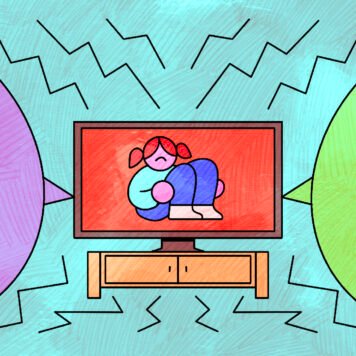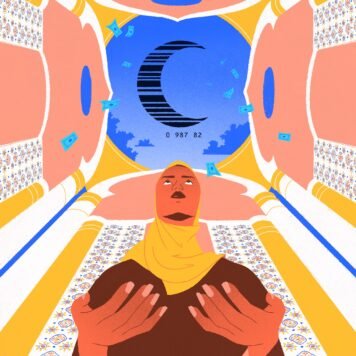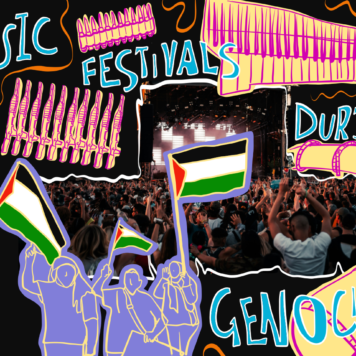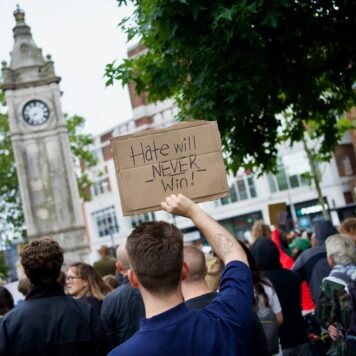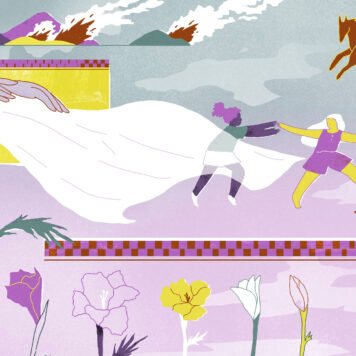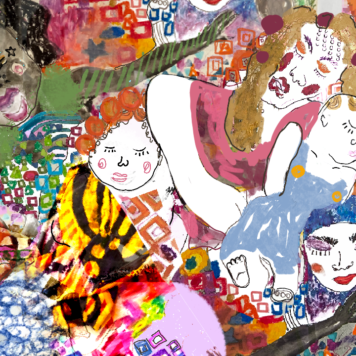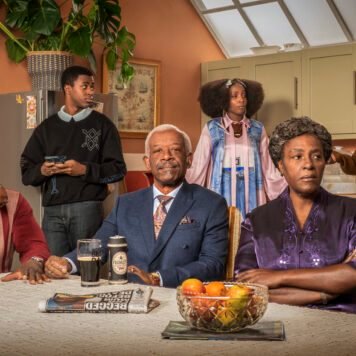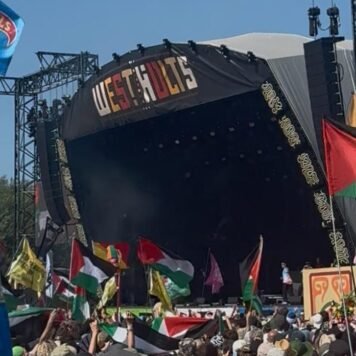shado and Counterpoints Arts have collaborated on a series of articles in celebration of Refugee Week 2022. They are written by artists, activists and journalists who are creating change in their communities and exposing first-hand the hostility of the UK’s asylum system. This piece is written by Loraine Mponela, a mother, writer, community organiser and migrants’ rights campaigner. She is originally from Malawi and moved to the UK in 2008 where she now lives in Coventry. Loraine is the ex-chair (2018-2022) for Coventry Asylum and Refugee Action Group (CARAG) and is the co-chair for the Status Now 4 All Campaign which is calling for Indefinite Leave to Remain for all that need it in the UK and Ireland. Loraine also sits on the advisory group of Refugee Week UK.
This year’s Refugee Week theme of ‘Healing’ has brought up a lot of questions for me around the healing that needs to take place for refugees trying to settle here in the UK. The immigration system is constantly stabbing and prodding at us. How can a wound heal if it keeps on being opened?
Many of us are wounded. By war, by violence and by the perilous journeys we make to seek sanctuary. Arriving in the UK is supposed to mean safety; the end of persecution and misery. But instead, we are met by a hostile environment.
This environment awakens the nightmares of drowning relatives in surging seas.
They relive this experience in the hostile environment through a lack of compassion and empathy. This becomes mixed with the indelible images of drowning, rape, torture and constant pain. This is the daily sound in our troubled ears.
Soon after, we hear another message: “go back from where you came from.” Those that say this usually have no idea that for most refugees there is no longer a place called home. For a lot of us, home is now a site of ruins. Broken roofs, shrapnel and empty bullet cases.
Refugees get blamed for their pock-marked lives. It’s as if people feel we deserve this life. As if one day we woke up and chose a life of rape, killing and violence. It’s like the victims of violence and the perpetrators are one and the same.
Maslow’s hierarchy of needs has five stages. At the top there is ‘self actualisation’, and at the bottom are ‘physiological needs’ of food, water, warmth and rest. Refugees are lucky to even meet these.
We are tired. Tired of being told we are not allowed to eat. Tired of being told we are not allowed to work. Tired of being told we are not welcome.
But I’m not only tired, I’m also angry. And I’m not alone in the feeling of rage and anger.
In the eyes of wider society, people seeking asylum are criminals. And this is a sentiment the government is reinforcing through their policies. We have no right to work, no right to a family life and it’s a struggle to even get legal advice.
Not only are we being left to drown in the channel, but even if we make it to the UK, we will now be shipped to Rwanda. A country still recovering from one of the worst genocides in modern times; a place where it is unsafe to be part of the LGBTQI+ community.
Many of us are forced to leave our homes due to issues of hunger, segregation, radicalism and racism. We are products of an unequal world. Most of us come from the Global South.
Our countries are rich with oil, gold and rare minerals. But legacies of extractivist colonialism have stripped them of these riches; and government corruption has left violence in its place.
The men and women in gilded offices in the Global North refuse to acknowledge their own roles and complicity in our conflicts. They continue to profit off the weapons which are destroying our countries, yet complain when we show up hungry at their borders.
Last year, the UK government brought in a new plan for immigration. The proposal is so dangerous and discriminatory that it is now commonly referred to as the “anti-refugee” bill. Shockingly, much of the proposal has already been passed into law.
No matter who or how a person finds themselves here in the UK, shouldn’t everyone be treated with compassion?
Apparently not, as the act of seeking asylum will now be criminalised by these laws.
The narrative of the ‘good’ versus ‘bad’ refugee does not help either. People are valued based on contributions they make; athletes, chefs in fancy restaurants or doctors. What they forget is that those of us who cannot cook to a Michelin standard, run marathons in record time or save lives are also in need of protection, dignity and freedom.
Besides, how can we be defined by the potential contribution we could make, when we are not given the opportunity to make one? Hippocrates said: “Healing is a matter of time, but it is sometimes also a matter of opportunity.” But we aren’t afforded this.
Subscribe to shado's weekly newsletter
Exclusive event news, job and creative opportunities, first access to tickets and – just in case you missed them – our picks of the week, from inside shado and out.

While we wait for decades in asylum limbo unable to work, do we too not deserve our humanity to be recognised and not just by our potential value? Whatever our ‘assets’, we are all humans. We are not victims. We are survivors and want and deserve to thrive.
As a member of the Coventry Asylum and Refugee Action Group (CARAG), I will continue to speak up against the injustices we face. We are not secondary passive onlookers: we are the protagonists in this struggle, even though we are often silenced in our own narratives. We are raising our voices and listening and learning from each other, reinforcing that there’s no better feeling than feeling heard and seen.
So if you ask what does healing mean to those of us going through the asylum system?
It means action.
Healing can only come when we unite and we resist. Healing can only come when we know others are also fighting back against this hostile environment.
We need the courage to be honest about what is happening in our communities and to connect truthfully with others from the heart. We need to build strong and lasting relationships in these communities, as we are the source of each others’ healing.
I urge you to raise your voices everywhere and as loud as possible to campaign for free and safe passage. Call for indefinite leave to remain for the undocumented amongst us, those refused asylum and those stuck in this broken system.
Let’s put a thumb in the eye of the hostile environment. Only then can we begin to heal.
Let’s make this Refugee Week about the contribution the entire society can make to stand in solidarity and support our call for dignity, justice and humanity.
What can you do?
- Support calls for indefinite leave to remain for people stuck in the hostile system
- Sign the Fairer Immigration Reform charter
- Learn more about the experience of migrating to Europe by reading our first issue
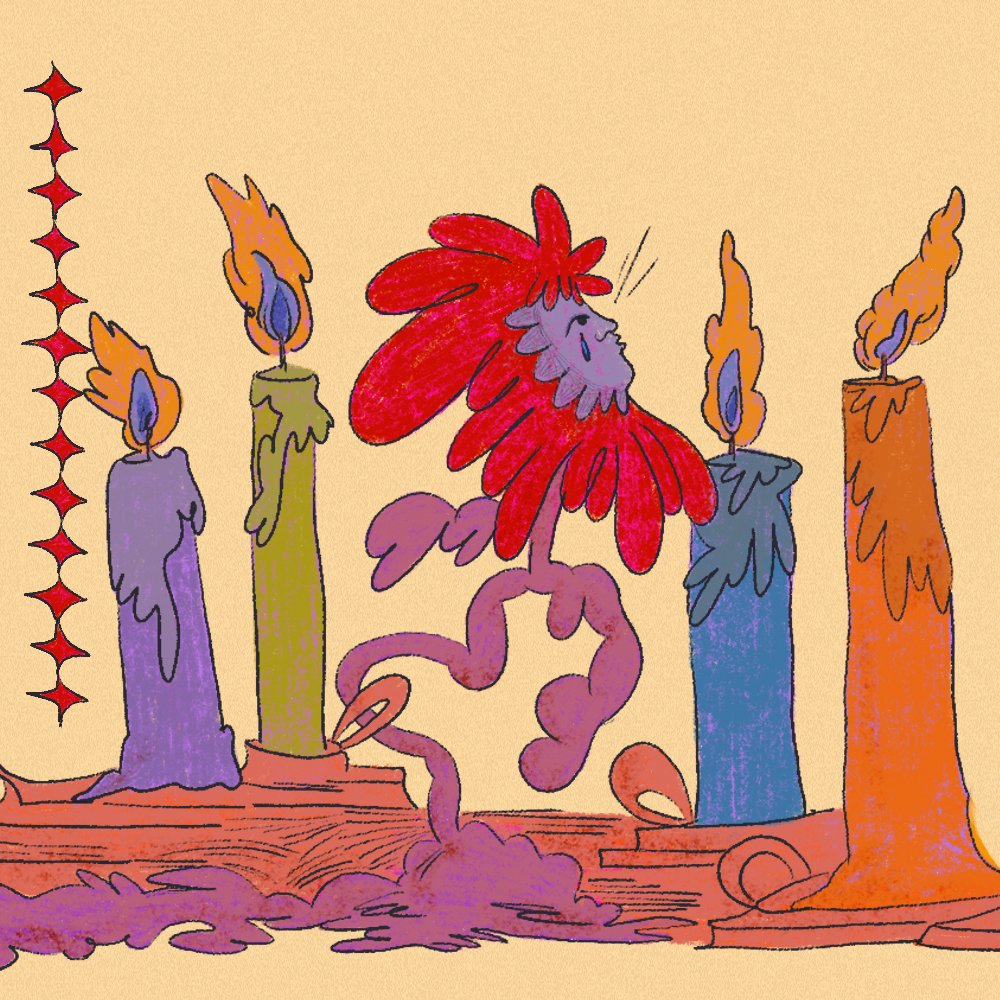
Artist description: “For this illustration, I aimed for feelings of “reblooming” along with the concept that people should be given opportunities to safely have space to heal and to regrow wherever they territorially are.”


